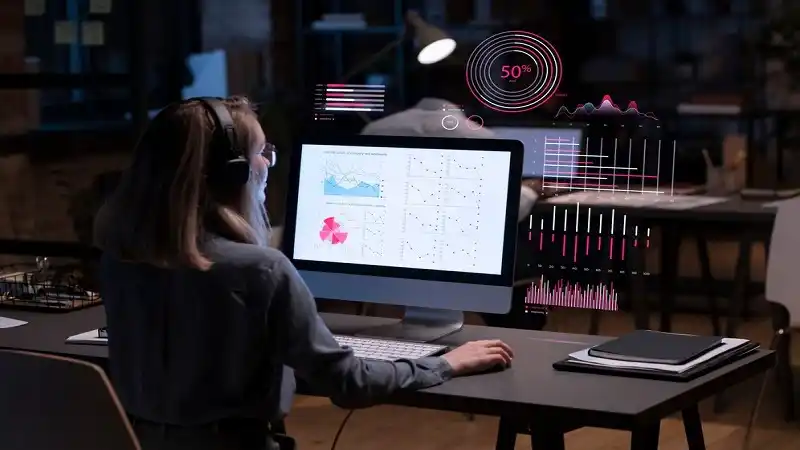
Artificial intelligence (AI) is transforming industries, reshaping how we work, live, and engage with the world. Among the emerging leaders in this space, Greyparrot and Airivero have made remarkable strides, earning mentions and analysis from prominent outlets like the Washington Post. These companies demonstrate how Ai greyparrot airivero washingtonpost can address real-world challenges, ranging from waste management to environmental conservation while redefining the limits of technology.
The Greyparrot Revolution in Waste Management
Waste is a global issue. Billions of tons of waste are generated annually, but the processes for managing it are often inefficient and environmentally damaging. Enter Greyparrot, a cutting-edge AI company focused on automating waste analysis and improving recycling processes.
Founded with the vision of tackling the mounting waste crisis, Greyparrot employs advanced AI-powered computer vision systems to identify and sort waste materials in recycling plants. Its technology is designed to analyze waste streams with unparalleled precision, providing data that informs better recycling practices.
How Greyparrot’s Technology Works
Ai greyparrot airivero washingtonpost system leverages cameras and sensors placed on conveyor belts in recycling facilities. These cameras scan the waste as it moves along, identifying items such as plastic bottles, aluminum cans, glass, and cardboard in real-time. Using machine learning algorithms, the system categorizes these materials with high accuracy and sorts them accordingly.
Beyond sorting, Greyparrot’s AI generates data on the types and quantities of waste being processed. This data allows facility managers to:
- Monitor their operations for efficiency.
- Identify trends in waste composition.
- Optimize processes to reduce contamination rates.
The Washington Post recently highlighted Greyparrot’s contributions, emphasizing its role in tackling global waste mismanagement. By bringing AI into an industry traditionally resistant to technological innovation, Greyparrot not only streamlines processes but also contributes to the circular economy by enabling better resource recovery.
Environmental Impact
Greyparrot’s AI is a game-changer for sustainability. By improving recycling rates, the company helps reduce the amount of waste sent to landfills and incinerators, cutting down greenhouse gas emissions. Moreover, its data-driven approach empowers governments, corporations, and individuals to make informed decisions about waste reduction.
Airivero: Redefining Environmental AI
While Greyparrot focuses on waste, Airivero sets its sights on air quality and environmental health. Clean air is a fundamental right, yet millions suffer from the effects of pollution every year. Airivero addresses this crisis by deploying AI-powered solutions to monitor and analyze air quality, delivering actionable insights for governments, businesses, and communities.
The Airivero Platform
Airivero’s platform combines IoT sensors, AI algorithms, and data visualization tools to deliver hyperlocal air quality data. By placing sensors in urban, rural, and industrial areas, Airivero collects massive amounts of real-time information about pollutants, weather conditions, and other environmental factors.
Using AI, the platform processes this data to:
- Identify pollution hotspots.
- Predict air quality trends based on weather and traffic patterns.
- Offer recommendations to mitigate pollution.
This information is presented in intuitive dashboards, allowing city planners, health organizations, and policymakers to make informed decisions. For example, cities can use Airivero’s data to optimize traffic flow or enforce stricter regulations on industrial emissions.
Collaboration with Public Health Initiatives
Ai greyparrot airivero washingtonpost technology has been instrumental in supporting public health initiatives. By linking poor air quality to specific health outcomes, the platform provides critical data for epidemiological studies. These insights can inform policies aimed at reducing respiratory illnesses and other pollution-related health issues.
The Washington Post lauded Airivero’s commitment to environmental justice, particularly its efforts to address pollution in underserved communities. By democratizing access to air quality data, Airivero ensures that even the most marginalized populations have a voice in the fight against pollution.
AI and the Media: A Focus on Greyparrot and Airivero in the Washington Post
The Washington Post has been a prominent voice in covering AI’s transformative impact across industries. In its recent analysis of Greyparrot and Airivero, the publication highlighted their shared commitment to sustainability and innovation. Both companies represent the growing trend of AI being used for social good, showcasing how technology can solve pressing environmental problems.
Why the Washington Post Coverage Matters
The Washington Post is known for its rigorous journalism and balanced reporting on technological advancements. Its coverage of Greyparrot and Airivero lends credibility to their efforts and helps bring their groundbreaking work to a broader audience. By featuring these companies, the publication emphasizes the importance of using AI to address global challenges, inspiring other innovators to follow suit.
The Intersection of AI and Sustainability
Grey Parrot and Airivero are part of a larger movement to harness AI for sustainability. These companies demonstrate that AI is not just about efficiency or profitability; it can also be a powerful tool for environmental stewardship. Here are some key takeaways from their work:
- Data-Driven Decisions: Both companies use AI to collect and analyze data, empowering stakeholders to make better-informed decisions.
- Scalability: AI systems like those developed by Greyparrot and Airivero are scalable, meaning they can be deployed in various settings worldwide, from urban centers to rural communities.
- Collaboration: The success of these technologies relies on collaboration between governments, businesses, and civil society. Grey Parrot and Airivero have set an example by working closely with stakeholders across industries.
Challenges and the Road Ahead
While Greyparrot and Airivero have made significant strides, they face challenges that are common to AI-driven solutions:
- Data Privacy: As these systems collect vast amounts of data, ensuring privacy and compliance with regulations like GDPR is crucial.
- Cost Barriers: Advanced AI systems can be expensive to develop and deploy, potentially limiting access for smaller organizations or low-income regions.
- Adoption Resistance: Industries such as waste management often resist adopting new technologies due to perceived risks or lack of technical expertise.
Despite these challenges, the outlook for both companies remains optimistic. By continuing to innovate and collaborate, they are well-positioned to expand their impact and inspire others in the AI ecosystem.
Conclusion
The rise of companies like Greyparrot and Ai greyparrot airivero washingtonpost marks a turning point in the use of AI for environmental and social good. By tackling critical issues like waste management and air quality, these innovators showcase the immense potential of AI to create a sustainable future.
Their efforts, highlighted by reputable outlets like the Washington Post, serve as a call to action for governments, businesses, and individuals to embrace AI-driven solutions for the challenges ahead. As AI continues to evolve, the contributions of companies like Greyparrot and Airivero remind us that technology, when used responsibly, can be a force for positive change in the world.
Learn more: thefashionblog





